Top 10 Oldest Tribes In Nigeria
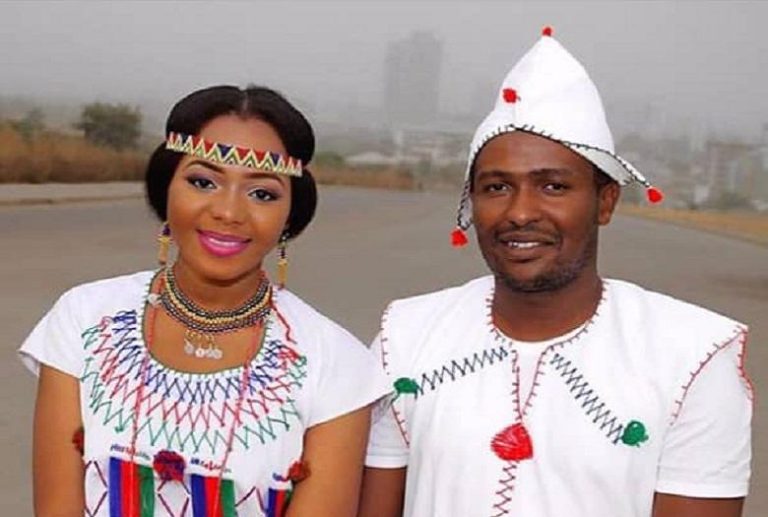
Nigeria, a land of diverse cultures and rich traditions, is home to a remarkable array of ethnic groups that have shaped the nation's identity over millennia. The tapestry of Nigeria's oldest tribes is woven from the threads of ancient civilizations, each contributing its own unique hues to the vibrant mosaic that is the Nigerian heritage. As we embark on a journey through time, we uncover the foundational pillars of Nigeria's cultural landscape and explore the intricate history that has sculpted the nation's present-day mosaic.
From the sun-drenched deserts of the Kanuri people in the northeast to the lush rainforests of the Igbo in the south, the cradle of Nigerian civilization stretches across diverse geographical landscapes. The Hausa, with their vibrant markets and iconic architecture, have woven themselves into the social fabric of the nation, while the Yoruba's artistic flair and spiritual traditions have left an indelible mark.
As we delve into the pages of history, we encounter the Fulani, renowned for their nomadic lifestyle and cattle herding, and the Tiv, guardians of the Middle Belt's agricultural heartland. The Nupe, with their ancient city-states, and the Ibibio, steeped in folklore, contribute to Nigeria's multifaceted heritage. The Edo, custodians of the Benin Kingdom's rich legacy, and the resilient Kanuri round out our exploration, showcasing the nation's profound cultural richness.
Join us as we peel back the layers of time to reveal the stories, rituals, and traditions that continue to bind Nigeria's oldest tribes to their roots. This article embarks on a voyage of discovery, unearthing the ancient foundations upon which modern Nigeria proudly stands.
Top 10 Oldest Tribes In Nigeria
- Kanuri
- Hausa
- Yoruba
- Igbo
- Fulani
- Tiv
- Nupe
- Ibibio
- Edo
- Ijaw
1. Kanuri
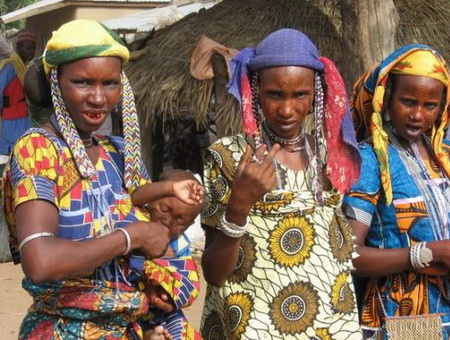
The Kanuri people, predominantly found in Nigeria's northeastern region, boast a rich history as traders, scholars, and warriors. Known for their mastery of horsemanship and agriculture, they have an enduring presence in places like Borno and Yobe states.
READ ALSO » Top 10 Richest Tribes In Nigeria 2024
The ceremonial Emirate of Bornu can be traced back to the Kanem-Bornu Empire, which was established approximately 1000 CE. According to Kanuri tradition, in the ninth century, Sef, the son of Yemen’s Dhu Ifazan, arrived in Kanem and established the Sayfawa dynasty. Evidence of indigenous state development dates back to roughly 800 BCE at Zilum in the Lake Chad region.
2. Hausa
The Hausa, with their origins dating back over a thousand years, are prominent across the northern belt. Renowned for their commercial prowess, they have left an indelible mark on trade and cultural exchange. Their vibrant markets, architecture, and language are central to the region's identity.
The Hausas boast of a long history that predates the establishment of the Sokoto Caliphate in the 19th century. This tribe has its roots tracing back to the ancient city-states of Kano, Katsina, and Zazzau, where they developed a flourishing trade and cultural exchange network.
3. Yoruba
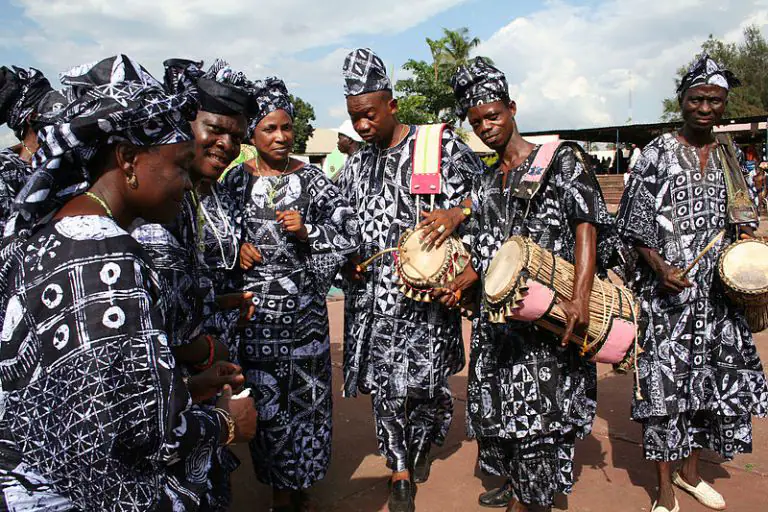
Nestled in the southwestern part of Nigeria, the Yoruba have a rich heritage spanning kingdoms like Oyo, Ife, and Lagos. Known for their intricate artwork, religion (including Ifa divination), and cultural festivals, the Yoruba have greatly influenced Nigeria's cultural landscape.
The Yoruba people are a West African ethnic group who mainly inhabit parts of Nigeria, Benin, and Togo. The areas of these countries primarily inhabited by the Yoruba are often collectively referred to as Yorubaland. The Yoruba constitute more than 52 million people in Africa, are over a million outside the continent, and bear further representation among members of the African diaspora. The vast majority of the Yoruba population is today within the country of Nigeria, where they make up 21% of the country’s population according to CIA estimations, making them one of the largest ethnic groups in Africa.
4. Igbo
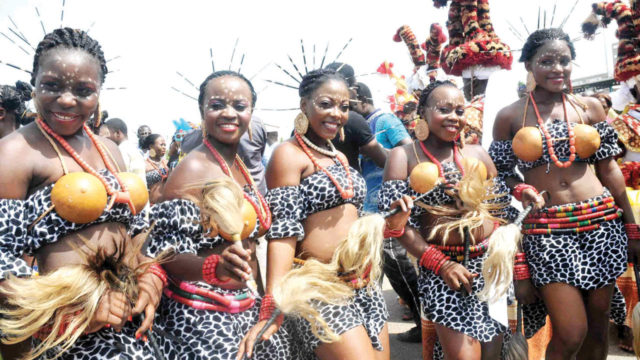
Occupying the southeastern region, the Igbo people are celebrated for their communal values, dynamic worldview, and enterprising spirit. Their system of governance and diverse artistic expressions have been instrumental in shaping Nigeria's cultural identity.
The Igbo people’s origins have been the topic of much speculation, as it is unclear how the community came to be. Before British colonial power in the twentieth century, the Igbo were a politically divided nation. Following decolonization, the Igbo developed a strong sense of ethnic identity. During the Nigerian Civil War (1967–1970), the Igbo territories seceded as the short-lived Republic of Biafra.
5. Fulani
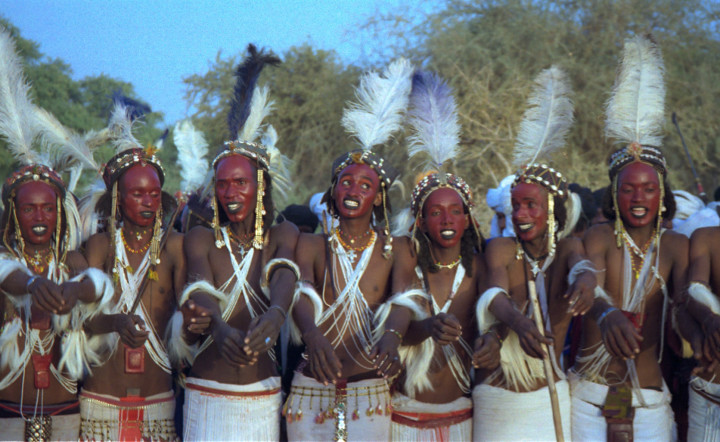
READ ALSO » Top 10 Richest Tribes In Africa 2022
The Fulani, pastoralists spread across the Sahel and West Africa, have greatly influenced northern Nigeria. Known for their cattle herding and distinct clothing, the Fulani's history is intertwined with trade, scholarship, and even political leadership.
6. Tiv

In the Middle Belt, the Tiv have thrived as agriculturalists. Their intricate social systems and rich oral traditions highlight their connection to the land and their unique place in Nigerian society.
7. Nupe
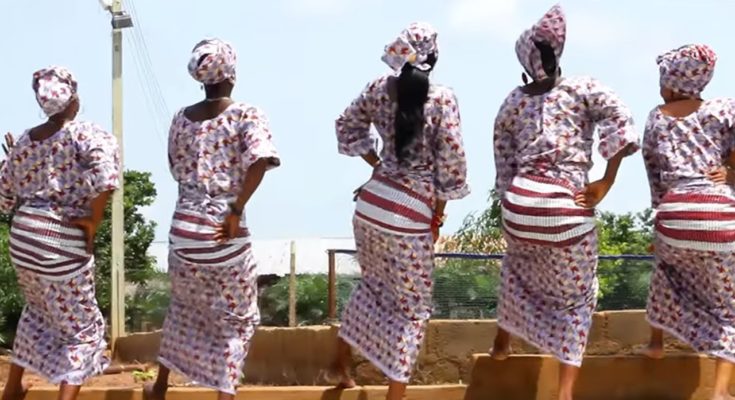
Hailing from the confluence region, the Nupe are renowned for their historical city-states and fishing traditions. Their artistry, music, and festivals contribute to the region's vibrant cultural tapestry.
The majority of the history learnt about this ancient country was based on oral traditions. Around 1770, Ruler Jibiri is supposed to have been the first Nupe king to accept Islam.
8. Ibibio
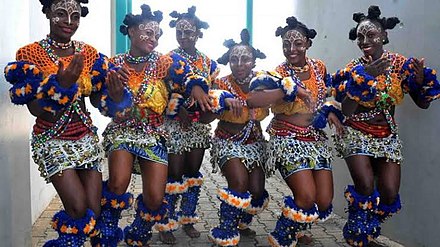
Dominant in Akwa Ibom and Cross River states, the Ibibio are known for their colorful festivals, artistic expressions, and intricate storytelling. Their mythology and practices reflect a deep connection to their ancestral roots.
The Ibibio people are the oldest of all Nigerian ethnic groups, living in the palm belt of southeast Nigeria. The Ibibio are said to have been the first people to settle in southern Nigeria. They are believed to have arrived at their current site around 7000 B.C. Regardless of historical evidence, it is unknown when the Ibibio first came into the state.
9. Edo
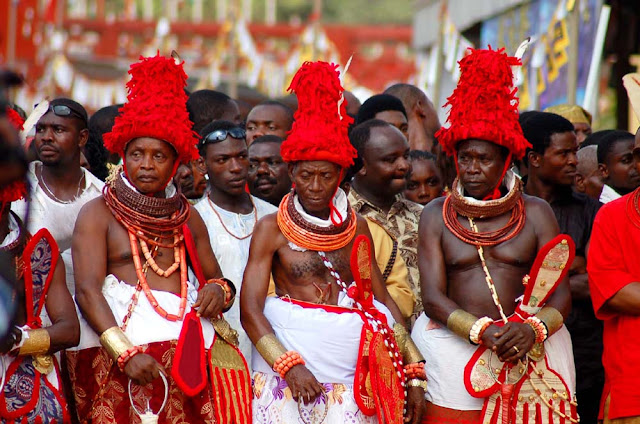
The Edo people, centered around the historic Benin Kingdom, are celebrated for their intricate bronze castings, regal ceremonies, and age-old monarchy. Their cultural legacy is deeply interwoven with Nigeria's historical fabric.
10. Ijaw
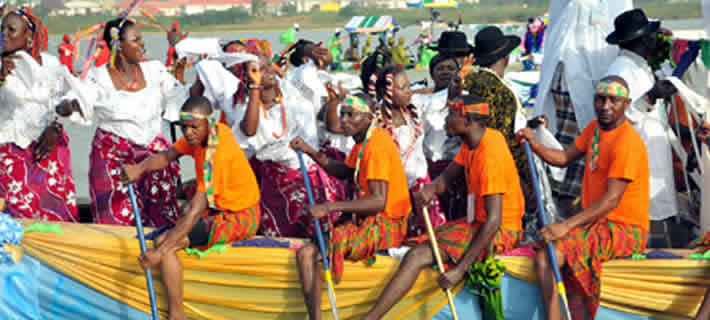
The Ijaw people, otherwise known as the Ijo people, are an ethnic group found in the Niger Delta in Nigeria, with significant population clusters in Bayelsa, Delta, and Rivers. They also occupy Edo, Ondo, and parts of Akwa Ibom. They account for over 9% of the Nigerian population. The Ijaws are unarguably the most populous tribe inhabiting the Niger Delta region and arguably the fourth-largest ethnic group in Nigeria.
READ ALSO » Top 10 Most Populous Tribes In Africa 2023
In the colorful tapestry of Nigeria's cultural heritage, these ten oldest tribes stand as pillars, each contributing a unique thread to the nation's identity. As we journeyed through their histories, it became evident that their legacies are woven into the very fabric of Nigeria's past, present, and future.
The tales of Kanuri traders, the bustling Hausa markets, Yoruba artistic expressions, Igbo resilience, Fulani nomadic traditions, Tiv agricultural practices, Nupe city-states, Ibibio folklore, and the regal heritage of the Edo all form a mosaic that represents the nation's unity in diversity. These tribes, through their traditions, languages, and customs, have carved out a space that showcases the rich multicultural essence of Nigeria.
The stories of these tribes remind us that while the landscape of Nigeria has evolved, the essence of its heritage remains steadfast. The spirit of community, the embrace of tradition, and the celebration of diversity continue to be the bedrock upon which Nigeria's cultural tapestry is woven. As Nigeria forges ahead, these ancient tribes will undoubtedly remain foundational to the nation's ongoing journey of growth and identity.
